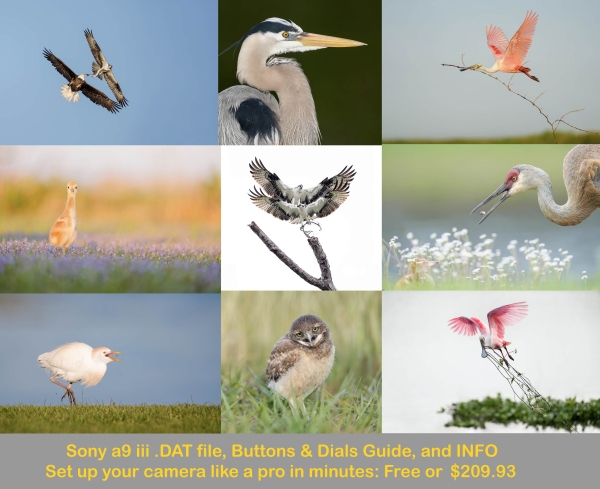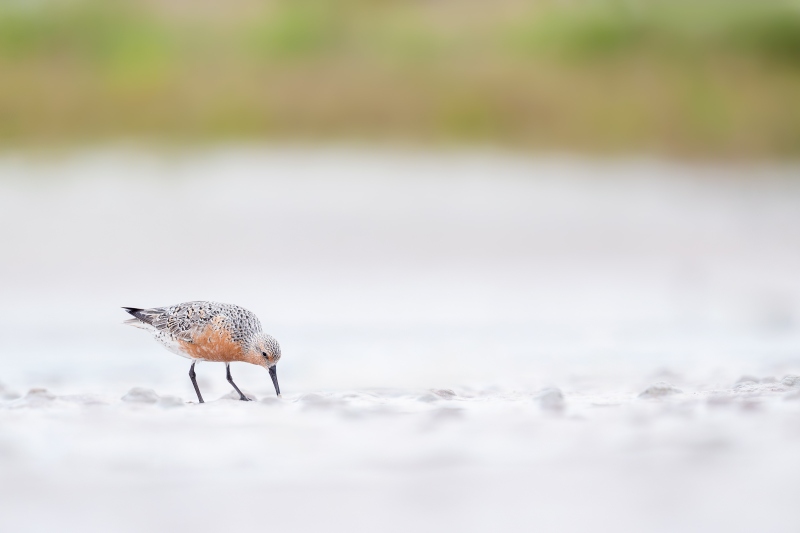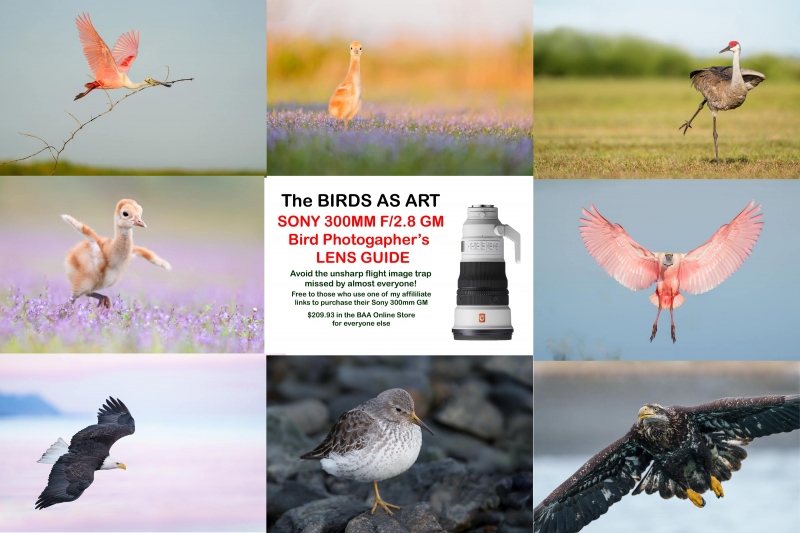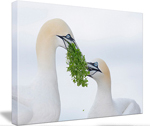Catch-22
Catch-22 is a problematic situation for which the only solution is denied by a circumstance inherent in the problem or by a rule.
What’s Up?
The above exactly describes my efforts to get post notifications for the blog working again. They had been working perfectly for 15 years. The harder I try, the worse things get. On the rare occasion when I hear back from someone, things have been made worse. It is a tangled web that is being woven. And do not even think of getting technical help from a human by phone. No solution is in sight.
In the Meantime
As there is no end it sight, be sure to favorite the blog and visit every other day or so. There is no reason to miss out on the learning.
|
|
a9 iii E-mail Set-up and Info Guide |
a9 iii E-mail Set-up and Info Guide
For those who think that my comments on the a9 iii are pure hype, know that I sold the second of my three a1 bodies this morning. Lots more on the switch coming soon.
If you plan on purchasing a Sony a9 III Mirrorless Camera (or anything else for that matter), please remember to use or write for either my Bedfords discount code or my B&H affiliate link. Folks who use one of my two affiliate links to purchase the a9 III will receive my .DAT settings (the complete camera set-up) along with a Buttons and Dials Guide.
Supporting My Efforts Here
If you enjoy and learn from the blog, please consider using one of my affiliate links when purchasing new gear. It will never cost you a single penny. To support my effort here, please order from B&H by beginning your search here. Or, click here, to order from Bedfords and enter the discount code BIRDSASART at checkout to receive 3% cash back to your credit card and enjoy free Second-Day Air Fed-Ex shipping. It is always best to write for advice via e-mail.
In many cases, I can help you save some serious dollars.
Learn to be a Much Better Bird Photographer
Join a BIRDS AS ART Instructional Photo-Tour. Better yet, sign up for both Homer trips.
|
|
|
This image was created on Thursday 9 May 2024 on the May 2024 Fort DeSoto IPT. Seated on damp sand I used the foot-pod technique with the handheld Sony FE 300mm f/2.8 GM OSS lens (Sony E) with the Sony FE 1.4x Teleconverter (at 420mm) and the ridiculously amazing Sony a9 III Mirrorless Camera. The exposure was determined via Zebra technology with ISO on the Thumb Dial. ISO 4000: 1/1000 sec. at f/4 (wide open) in Manual mode. When evaluated in RawDigger, the raw file brightness was determined to be perfect. AWB at 7:38:41am on a partly cloudy, variably sunny morning. Tracking: Zone/AF-C with Bird Face/Eye detection enabled performed perfectly. Be sure to click on the image to enjoy a high-res version. Breeding plumage Red Knot foraging on sand flat at low tide |
What to Do on a Lousy, Lazy Afternoon?
As we headed for the beach on our 2nd IPT afternoon, it was dark and windy and the tide was low. In other words, things were not looking good. We walked all the way to the north. Aside from one dancing Reddish Egret at a good distance, we found an adult Laughing Gull picking at a long-dead, stiff, sand-encrusted Mullet. So, we headed back to the parking lot and found a small group of shorebirds foraging on a sand flat.
As I had rented my 600mm f/4 to Steve Shore (he loved it and the a9 iii), and was too tired to bring the 400mm f/2.8 and a tripod, I had only the 300mm f/2.8 (and a 1.4X TC) with me. We spread out and sat on the sandy/mud. Every once in a while a Sanderling or a Dunlin would wander into photographic range. I recommended that the folks use a fairly fast shutter speed and raise the ISO until they had some Zebras on the water or mud, and ignore the high ISO settings. I am proud that they all got that right as most everyone underexposes at the beach in low light conditions.
Keep or Delete?
My eyes were fixed on two Red Knots foraging at a distance. Working very low at 420mm so as to include the marsh and add some green, the only option was a bird-scape. a9 iii AF continues to amaze me. The image above was the best of the lot. Would you have kept this one or deleted it? (Note: the prettier the breeding plumage knots, the more difficult they are to get close to, especially when they are roosting in large groups as they had been that morning.)
Why the 300mm f/2.8?
As we age, pretty much all bird photographers are looking to go lighter. And working without a tripod is an incredible pleasure that makes you much more mobile and makes it easier to get into the best shooting position. Having rented my 600mm f/4 GM to Steve Shore for the IPT, I’ve been switching using either the 400mm f/2.8 GM lens (with TCs) or the 200-600 (often with the 1.4X TC. As the 300mm f/2.8 8s the lightest of the three and I was feeling a bit tired on Friday morning, I went as light as possible and handheld the 300. I started with the 2X TC but as the birds were so close, I quickly switched to the 1.4X. I was surprised at how well I did.
|
|
|
For those who did not use my link to purchase their Sony 300mm f/2.8 GM lens, you can order your a copy here for $209.93. Click on the image to enlarge and to be able to read the fine print. |
The BAA Sony 300mm f/2.8 Lens Guide
Impressed by my Sony FE 300mm f/2.8 GM OSS Lens (Sony E) images from the last three posts? Use either my Bedfords or B&H affiliate link to purchase your Sony 300mm f/2.8 GM lens and shoot me your receipt via e-mail and request a copy of the first-ever BAA Lens Guide. I thought that it would take only minutes to create this guide, but I was dead wrong. In the process of creating it, I learned a ton about the lens. And even better, I discovered a simple yet potentially fatal flaw that was resulting in sporadically unsharp flight images. The set-up fix is simple. Just be sure to use one of my affiliate links and get the guide for free.
If not, you can purchase a copy here for $209.93. Yes, it never hurts to use my links and it never costs you one penny more. And if you contact me via e-mail before you make a major purchase, I can often save you some money.
Typos
With all blog posts, feel free to e-mail or to leave a comment regarding any typos or errors.

















WHAT IS GOING ON HERE??? 🙂
got test
Test
The “scape” here isn’t as powerful as in the Oystercatcher birdscape, but I like the quality of the sand in the plane of focus, and I’d keep the image. Selecting the bird and darkening it a bit in a Levels layer separates the bird’s back from the sand and creates more apparent depth.
+1